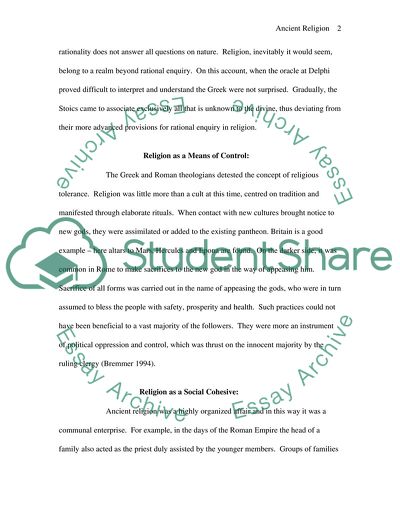Cite this document
(Religion in the Ancient World Assignment Example | Topics and Well Written Essays - 1500 words, n.d.)
Religion in the Ancient World Assignment Example | Topics and Well Written Essays - 1500 words. https://studentshare.org/religion-and-theology/1540752-what-sorts-of-support-did-people-get-from-religion-in-the-ancient-world
Religion in the Ancient World Assignment Example | Topics and Well Written Essays - 1500 words. https://studentshare.org/religion-and-theology/1540752-what-sorts-of-support-did-people-get-from-religion-in-the-ancient-world
(Religion in the Ancient World Assignment Example | Topics and Well Written Essays - 1500 Words)
Religion in the Ancient World Assignment Example | Topics and Well Written Essays - 1500 Words. https://studentshare.org/religion-and-theology/1540752-what-sorts-of-support-did-people-get-from-religion-in-the-ancient-world.
Religion in the Ancient World Assignment Example | Topics and Well Written Essays - 1500 Words. https://studentshare.org/religion-and-theology/1540752-what-sorts-of-support-did-people-get-from-religion-in-the-ancient-world.
“Religion in the Ancient World Assignment Example | Topics and Well Written Essays - 1500 Words”. https://studentshare.org/religion-and-theology/1540752-what-sorts-of-support-did-people-get-from-religion-in-the-ancient-world.


